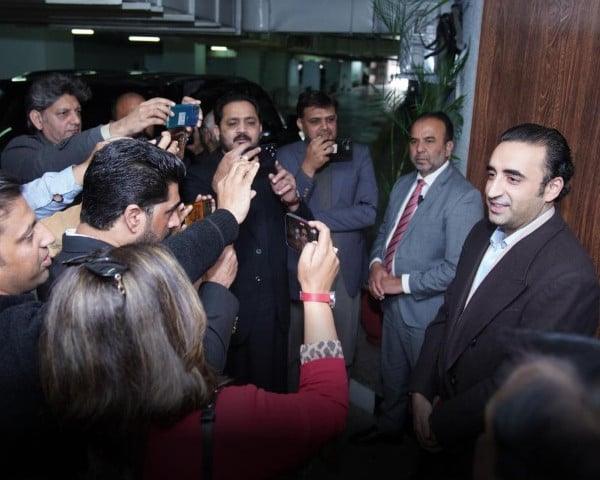Pakistan People’s Party (PPP) Chairman Bilawal Bhutto Zardari claimed that only Parliament has the authority to repeal the 26th Constitutional Amendment, stating that no other institution would be recognized if it tried to undo the amendment.
Addressing the media in Parliament, he also clarified that the PPP is not part of the federal cabinet, Express News reported on Friday. “I am not a minister nor do I hold any government position, so I have no official agenda during my upcoming visit to the United States,” he said.
Responding to a journalist’s question about the possibility of Prime Minister Shehbaz Sharif completing his five-year term, Bilawal replied, “Insha Allah,” but reiterated that the PPP would not be part of the federal cabinet.
On foreign policy, Bilawal acknowledged the complex geopolitics of the region, highlighting the relationship between the United States and China. “The PPP will never compromise our nuclear assets or programs,” he said.
He reiterated that Pakistan’s foreign policy remains stable, with special focus on the country’s nuclear assets and missile technology, to which he attributed the legacy of Zulfikar Ali Bhutto and Benazir Bhutto.
On the issue of the Pakistan Electronic Crimes Act (PECA), Bilawal suggested that it would have been a better approach to consult with media representatives and digital media experts before passing such legislation.
He advised the government to build consensus before taking any decision to ensure smoother implementation.
Bilawal also addressed issues relating to the judiciary, highlighting that when a new judge is appointed to the Supreme Court, other judges should facilitate his transition rather than creating difficulties.
“Whether it is a Supreme Court chamber or a constitutional chamber, everyone must respect the Constitution and the law,” he added.
Bilawal’s comments come amid growing discussion surrounding the 26th Constitutional Amendment, particularly its reversal.
He made it clear that any reversal of the amendment would have to be carried out solely by Parliament, warning that neither the PPP nor anyone else would accept any attempt by another institution to undo the changes.
The 26th Amendment has sparked significant debate, and a constitutional bench of the Supreme Court is scheduled to hear petitions against it on January 27.
The amendment, approved in October 2024, introduced key changes to the judicial appointment process, specifically to Article 175-A. These changes were significant, especially as the amendment altered the procedure for selecting the Chief Justice of Pakistan.
On January 16, a courtroom hearing cases related to the amendment and the powers of the regular courtroom fractured, highlighting ongoing tensions around the issue.
The 26th Amendment had previously led to the establishment of a parliamentary committee to select the chief justice, a break with Pakistan’s long tradition of selecting the most senior judge for the position.
Bilawal also reflected on the recent history of judicial appointments, including the controversial selection of Justice Yahya Afridi as the next Chief Justice in October 2024, which led to the modification of judicial procedures through the amendment.




